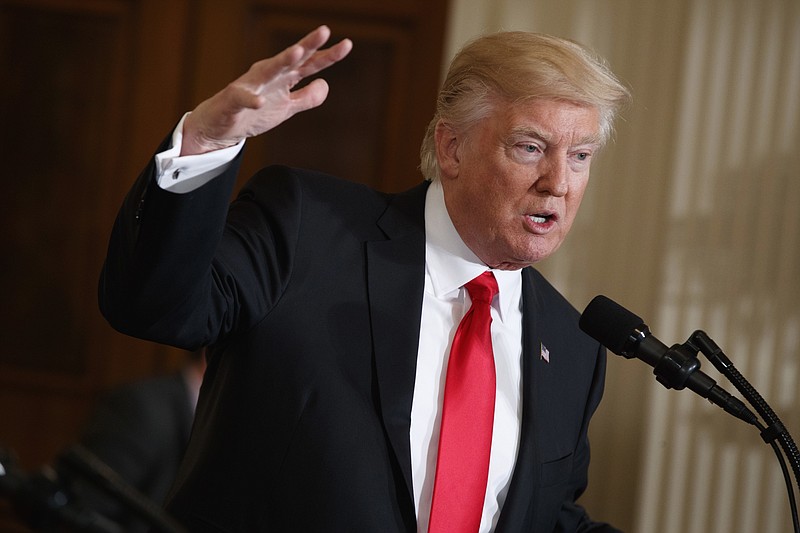America's rivals and enemies have enjoyed a very good 12 days.
One clear beneficiary has been ISIS, which has spent years trying to persuade Muslims that the United States is at war with Islam. ISIS wants to eliminate the world's "gray zone," the places where Muslims, Christians, Hindus and Jews live in harmony.
No wonder that ISIS-affiliated social media gleefully posted President Donald Trump's executive order this weekend. Trump's travel ban plays right into ISIS' desire to eliminate the gray zone.
Besides the immorality and apparent illegality of Trump's order, it's worth weighing the strategic effects as well. Yes, it is conceivable that barring visitors from Iran, Iraq, Libya, Somalia, Sudan, Syria and Yemen would keep out a future terrorist. But it's highly unlikely.
Any strategic benefits are tiny while the costs are substantial: Trump has just helped ISIS recruiters. He has angered Iraq, France and others battling ISIS. Most alarmingly, he has undercut our claim to stand for larger principles - freedom, rule of law, even basic competence.
This undermining of both U.S. values and interests has been an early theme of the administration. And the ultimate beneficiary is not likely to be ISIS. The ultimate beneficiary is instead likely to be America's biggest global rival: China.
China remains far less powerful than the United States. But it has come a long way. Its economic progress and its ambitions, combined with the size of its population, mean that China has become the world's only other potential superpower.
Some degree of a rising China is inevitable - and welcome, given the continued reduction in poverty that will happen. The big unknown is whether China will change as it rises, to become freer and more respectful of the rule of law, or whether China will mold the rest of the world in its current closed and authoritarian image.
Here, too, the Trump administration has set back U.S. interests.
In another executive order, Trump pulled the United States out of the Trans-Pacific Partnership. Whatever you think about the deal's economic effects, the pact was more about geopolitics than economics. It was, as the Australian academic Salvatore Babones wrote in Foreign Affairs, "primarily a tool for spreading U.S. interests abroad." Much of the Pacific Rim, including Australia, Vietnam and Malaysia, welcomed it, too.
They welcomed it because they want a strong U.S. presence to offset Chinese power in Asia. These countries have close commercial ties with China, but they are afraid of becoming merely moons that orbit Beijing. They tend to prefer the U.S. model to the Chinese model.
Now that Trump has rejected our would-be Asian allies, China is trying to put together a different trade pact with some of the same countries. If China succeeds, it will gain more sway in Asia, as will a more bare-knuckle economic system in which copyrights, worker rights, product safety and the environment aren't taken very seriously.
Meanwhile, Beijing will be able to point to Trump's extralegal stances as proof that the United States is just another self-interested, transactional nation.
The early pattern of Trump foreign policy is to take actions that have the veneer of strength but are actually weak. It's a kind of anti-Teddy Rooseveltism. Instead of speaking softly and carrying a big stick, the White House is screaming loudly to hide insecurity about the strength of its stick.
The people with the most ability to limit the damage are Republicans who see themselves as advocates of a strong America. Bob Corker, John McCain, Marco Rubio and other members of Congress have enough leverage over the administration to influence it.
The question they should be asking themselves is: How do our enemies and rivals feel about the Trump administration so far?
The New York Times

